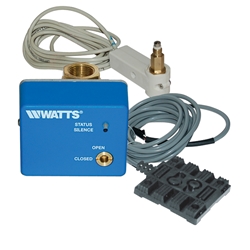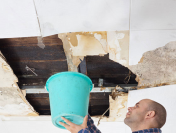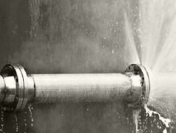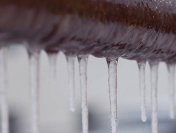Will your homeowner’s insurance policy pay for damage done to your home caused by a water leak?  Most homeowner’s policies will cover water damage caused by sudden or accidental natural or man-made events, like a defective washing machine, but many policies will not pay for damage resulting from improper maintenance. And, even if your insurance company does cover most water leaks, your annual premium is likely to increase if you put in a claim. Either way, it’s not exactly a win-win scenario for the homeowner!
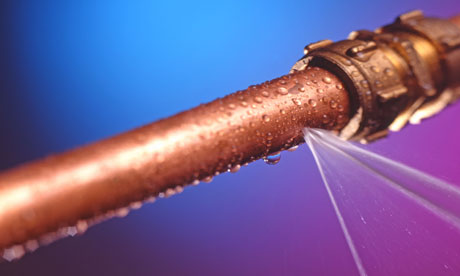
One way to prevent catastrophic water leaks and avoid having to tangle with your insurance company is to install an automatic water shutoff valve that turns off the water supply before damage is done. These valves work around the clock whether you are home or not. There are several types of automatic water shutoff valves. Here’s how to choose the right one for your home.
Whole House or Single Appliance?
There are two basic automatic water shutoff valve systems: “whole house†and “single appliance.â€
Whole House Systems:Â
If a leak is detected, this type of automatic water shutoff valve turns off the main water supply line so the entire house is protected, regardless of where the source of the leak is.Â
Most whole house systems use sensors that are placed where leaks are likely to occur, like next to an appliance or in the basement or garage. Other systems, like the one by FloLogic, use a “flow meter†that monitors the level of water coming into the house and shuts it off if the flow exceeds a preset limit.
Recommended whole house systems:Â FloLogic; WaterCop; FloodMaster.
Single Appliance Systems:Â Â
This type of automatic water shutoff valve monitors a single appliance – such as a hot water heater, washing machine or dishwasher – and turns off the water supply going specifically to that appliance if it is leaking.
Most single appliance water shutoff valves use a sensor that is placed near or under the appliance. For a non-mechanical solution, Watts FloodSafe offers a line of stainless steel connector hoses that automatically shut off the water supply to plumbing fixtures/appliances if excess water flow is sensed.
Recommended single appliance systems:  Watts FloodSafe for water heaters; FloodMaster Washing Machine Leak Detection & Water Supply Shut-Off System;  Floodmaster Water Heater Leak Detection System; Watts IntelliFlow Automatic Washing Machine Shutoff Valve; WaterCop Leakstop for any appliance.
Buying Tip: For high-end homes or vacation homes that are left vacant for long periods of time, a whole house system is a good investment for overall protection and peace-of-mind. If your home has older or leak-prone appliances that you’re concerned about, a single appliance shutoff valve is a cost-effective way to prevent damage from localized leaks.
Wired or Wireless Sensors?
Both whole house and single appliance water shutoff valve systems are available with wired or wireless moisture sensors. There are advantages to both types.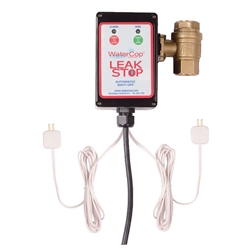
Many homeowners prefer wired sensors because they want a reliable, secure connection that doesn’t need its own power supply and isn’t vulnerable to any radio signal interference. However, wired sensors can be more difficult to install, especially in older homes, and the system may accept fewer sensors.
Wireless sensors are easier to install and position where you need them because there is no electrical wiring to do. It’s also easy to expand coverage by adding more sensors. And if you relocate, you can take your wireless system with you.  Wireless sensors are battery-powered, so the batteries may need to be replaced annually, and some homeowners do not want that extra maintenance.
Buying Tip: For an overview of different wired and wireless systems, go to this Automatic Water Shut Off Valves Comparison Chart and reference the line called “Sensor Communication.â€
Unique Features Users Like Most
Certain automatic water shutoff valve models have unique features that appeal to many homeowners. Here are a few of the most popular features amongst our buyers:
On/Off Remote Control:
This is a popular feature for homeowners who want to be able to turn the water main on and off easily using a remote control.  Vacation homeowners in particular like this capability so they can shut down the entire plumbing system easily. The WaterCop system offers two options:
- A shutoff valve with manual on/off controls that provides a quick, convenient, and positive shut-off of the main water supply at the touch of a button. An optional switch can be located anywhere in the house if the water main is difficult to access.
- Or, for remote control of the water main via a smartphone or computer, WaterCop offers another system that uses Z-Wave wireless technology in conjunction with a Z-Wave home automation system controller, such as the VeraEdge Home Controller.
Â
Larger Valve Sizes: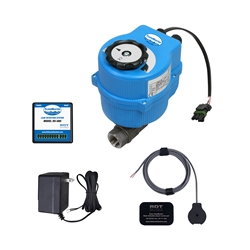
The diameter of your automatic water shutoff valves must be matched to the your pipe. Most shutoff valves are available in standard diameters: ½†to 1-¼â€.  For commercial applications, the FloodMaster Automatic Leak Detection Alarm & Water Main Shut-Off System offers valve sizes up to 4†diameter.
Water + Power Supply Shutoff:
In addition to turning off the water in the event of a leak, the Watts FloodSafe Water Detector Shutoff for water heaters also turns off the power source to the water heater for additional safety.
American Made:
Some foreign-made plumbing products contain lead, however, all of the automatic water shutoff valves mentioned in this article are made in the U.S.A., are lead free  and comply with 2014 Federal Safe Drinking Water Act standards.
Summary
Protection from catastrophic water leaks is one good reason to install a whole house or single appliance automatic water shutoff valve system. Another plus is that many insurance companies will give you a discount on your homeowner’s insurance premium for installing water shutoff valves. Be sure to check with your insurance agent to find out what kind of savings you are entitled to.


